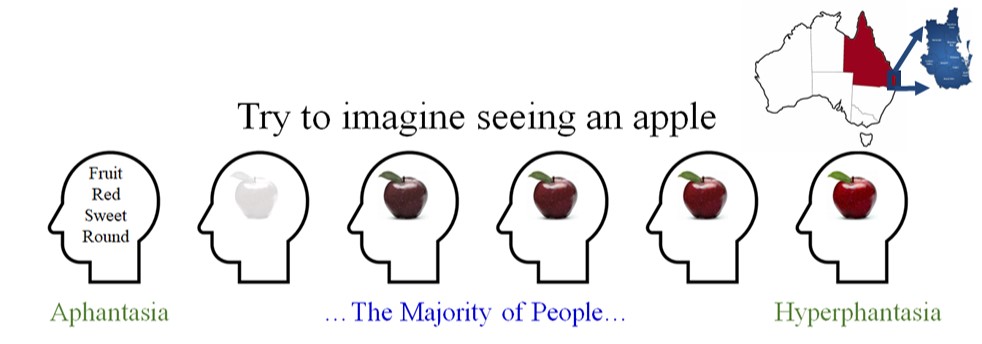
Within the discipline of psychology, one of the conditions that scientists study is the lack of mental imagery, or aphantasia, especially life-long, or congenital aphantasia. Aphantasia is the complete inability to create voluntary mental imagery in an individual, referred to as an aphantasic individual. First mentioned in text by Sir Frances Galton in his breakfast table study in 1880, it has remained a very understudied topic. This characteristic is currently believed to be found in 2% of the population and causes deficiency in recall ability, whether that be from short term or long term memorization. A person with aphantasia is called an aphantasic.
Aphantasic individuals have an inability to produce many types of mental sensory. This inability can cause difficulty in certain areas of cognition. Mental sensory includes things such as visualization, being able to mimic other sounds or voices, remember the feeling of a surface or object, and more.

oooosdfjaoineoainsd
0000000000000